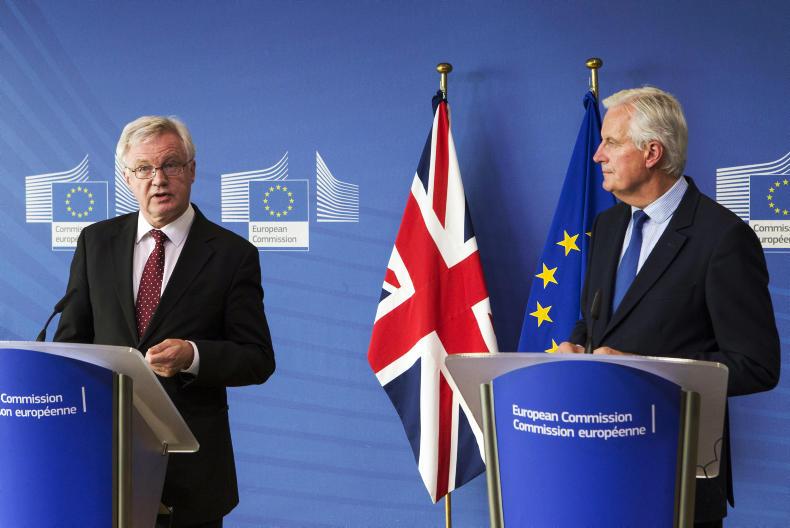The one area of Brexit negotiations that was progressing well was dividing up third country import quotas in preparation for when the UK left the EU.
The sensible approach seemed to be to split the EU28 quota between the EU27 and the UK and base it on the amount of business done.
Therefore, if the EU28 had allowed access for 1,000t of beef, of which 250t went to the UK, it seemed sensible that the EU27 should keep 750t of the quota and the UK take 250t with it on leaving.
That kept the overall amount the same and seemed sorted.
Not happy
However, the countries outside the EU that used these quotas are not happy with this arrangement and have got together to protest at the World Trade Organisation (WTO).
The WTO is made up of 168 countries across the world and, as well as setting maximum tariffs that countries can charge where there is no trade deal, they also have the disputes resolution forum where there is disagreement between members.
A group of countries who are major exporters of agricultural produce has written to the WTO opposing the EU-UK plan. These include Canada, Brazil, Uruguay, Argentina, New Zealand and now the USA.
Their view is that it is more advantageous to them having access to a 1,000t quota to enter any of the EU28 countries than have it split between the EU27 and UK.
Therefore, it looks like the one area where the EU and UK were finding agreement could be frustrated at WTO.
It has been a tough week for the UK Prime Minister Theresa May.
The lead-up to her party conference was dominated by Foreign Secretary Boris Johnson manoeuvring to emphasise his leadership credentials.
She struggled to deliver her conference speech because of a cold, and in the middle of it was handed a mock P45 from a prankster. When the lettering on the conference backdrop behind her started to fall to the floor, it gave the impression that everything was falling apart.
Very different
It was all very different back in January when she set out her ambitions in the Global Britain speech in Lancaster house.
In it, she emphasised the trade deal opportunities that were available and name-checked the USA, Brazil and New Zealand as natural trading partners post-Brexit. What appeared to be favourable discussions with Canada and Australia had also been held.
The spat over the past couple of weeks with the USA over the imposition of punitive tariffs on Bombardier planes, partly made in Belfast and sold in the USA, was a clear example of how the US administration was putting “America first,” and sentiments from President Trump about doing a great trade deal with the UK are likely to be focused on what is a great deal for the USA.
Further complication
Now this objection to WTO about what the EU and UK can agree between them is a further complication.
The negotiation was already difficult between the EU and UK. Now that the rest of the world is having its say it is clear that what was already difficult is getting even more complicated.
34 Irish companies at world's largest food fair
Mercosur: no hiding behind promises to meet safety standards






 This is a subscriber-only article
This is a subscriber-only article










SHARING OPTIONS: